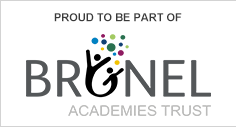Anti-Bullying Statement
The Anti-bullying strategy statement is an accompanying statement to go alongside the anti-bullying policy (the procedures).
Anti-bullying Strategy Statement
In Westlea Primary School we recognise that bullying happens, and it could happen here. Bullying is not acceptable, no matter what form it takes and we will address concerns as they arise. The negative impact of bullying can be lifelong as well as impacting on short term outcomes and engagement and attendance at school.
To help our pupils understand what bullying is, why is it shouldn’t happen and how to deal with situations of bullying as they arise, we believe we need to educate our pupils well. They need to know what the different types of bullying are and be confident in reporting their concerns to staff and know that their concerns will be heard and acted upon. In turn our staff need to know what to do when a pupil raises a concern and how to report it so that appropriate help and support can be provided to the children.
We also as an organisation need to understand the scale of the problem in our setting, the nature of any bullying that occurs and have in place an agreed approach to dealing with it which is deeply understood. The approach and steps we take to addressing bullying as we discover it is contained in our Anti-bullying Policy. Our approach to helping children understand about bullying is found within our curriculum policies and documents.
Our strategy to educate pupils about bullying
Our curriculum provides all pupils with specific content related to the types and signs of bullying. Dedicated lessons give pupils opportunities to learn and test out their understanding about each type of bullying. They are also provided with information about how to report bullying.
Our school also gives pupils opportunities to gain information about bullying and for leaders to ensure that conversations about types of bullying happen regularly. We do this through assemblies, anti-bullying week activities, visitors to the school and through our PSHE lessons.
How we find out the scale of the issues and monitor bullying
We draw together information from our reporting systems termly, both from that which staff place on our recording systems but also that drawn from our forensic software. This allows us to understand what the nature of the bullying is, who is doing it and the severity of the concern.
Our staff reporting system CPOMS, is a vehicle for all staff to record concerns as they arise, and they are trained to do so at induction and through ongoing refresher training.
Forensic software tracks all staff and pupils use of the internet and documents and captures phrases or terminology of concern. Reports are routinely sent to the Designated Safeguarding Lead and their Deputies to review and to consider what action to take next.
Should marker comments related to bullying be seen through either reporting mechanism, leaders will address this using our anti bullying policy and safeguarding procedures. Our Designated Safeguarding Lead and their Deputies lead on this work.
Reporting and Oversight
Leaders reflect on all safeguarding and bullying matters routinely in their leadership and safeguarding meetings. The Headteacher will then additionally formally report on the types, frequency and severity of bullying at local governor meetings.










